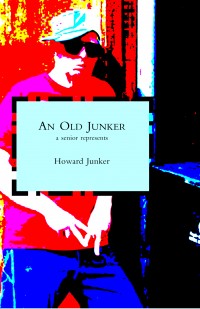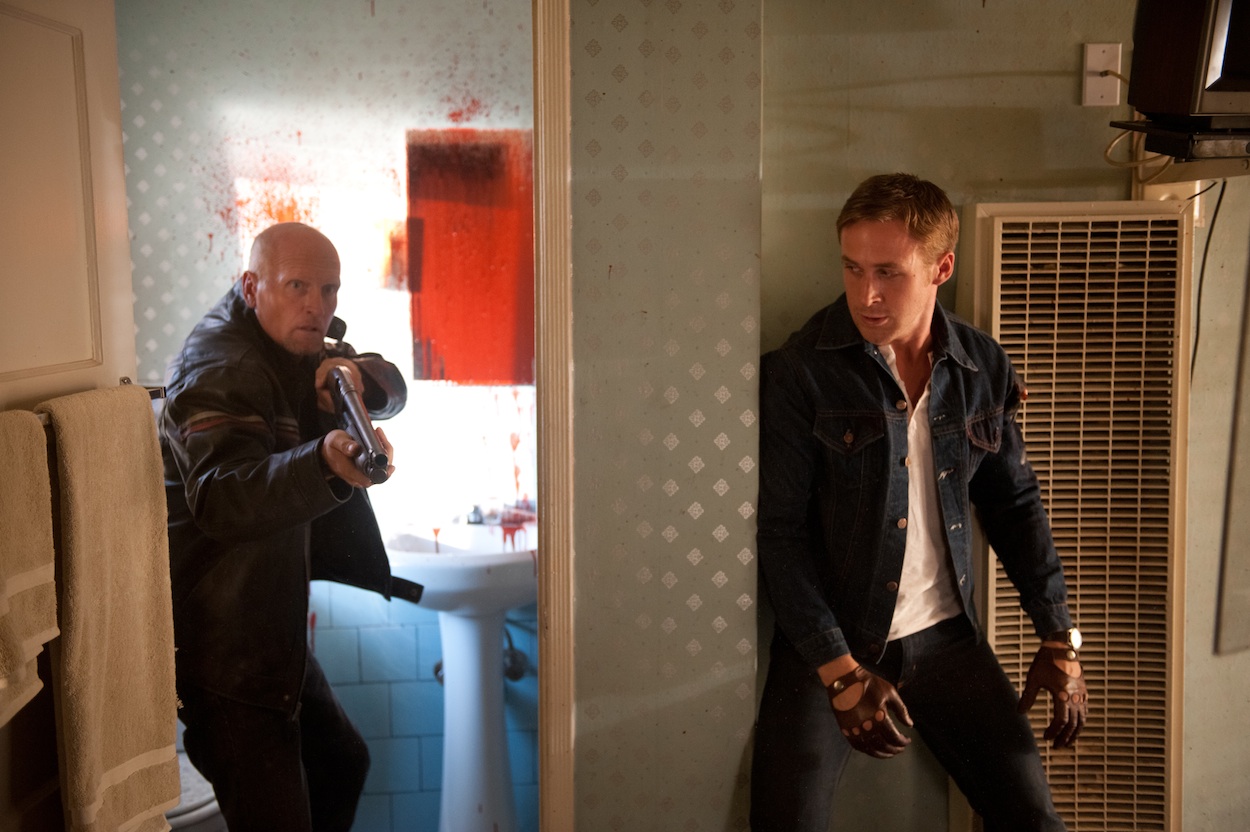On Popcorn
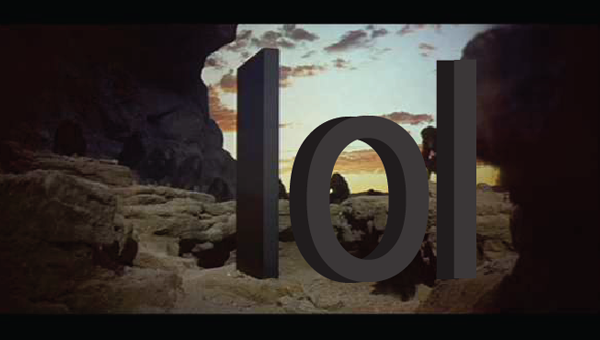
The following are reviews of films I either fell asleep to, fast forwarded through, or simply didn’t understand, written in a manner unabashedly ignorant of cases in mention, interspersed with meditations on popcorn.
2001: A Space Odyssey — First there’s apes everywhere and weird music, then an ape goes bizerk and slams the earth with a femur bone. And there’s a large Richard Serra type piece of steel just standing there and I’m like “yup, this is totally Stanley Kubrick,” yup, I’m about to experience three hours of weird slow shit. Then all I remember is a space man talks with a pretty lady like he’s buying a plane ticket. Then he walks through a corridor with bright lights, like the perfume section of Sephora or Macy’s. I end up 20x-60x fast forwarding through it until I’m at this 20 minute long Pink Floyd-type video full of effects or something, again, I can’t remember exactly, only that I was severely annoyed. Then the space man is in bed and there’s a gigantic baby. So I’m thinking that space and amniotic fluid is the same? And like we are apes? In Radiohead’s “No Surprises” video Thom Yorke dressed up as the space man and water filled the mask until he almost drowned, which was also annoying, like his current oily hair look. Kubrick had it wrong. In 2001 the world was still boring like in 1968, but Miley Cyrus didn’t exist, so that’s something.
FictionSpeak 2: Dialogue

I was trying to write dialogue the other day. Then I was trying to write about dialogue. There was an article in the Wall Street Journal back in February called “Talk That Walks: How Hemingway’s Dialogue Powers a Story,” by John L’Heureux. I found this article because I had just read “Hills Like White Elephants.” I don’t feel like talking about Hemingway. Though his dialogue is masterful, I really hate his treatment of the girl. I also hate L’Heureux’s treatment of the girl for different reasons, but I like what he says at the conclusion of this article:
“Dialogue suggests what people mean by what they’re saying, even if they themselves aren’t fully aware of it. Sometimes, of course, the most effective dialogue culminates in silence. This is more than irony. It is what characters do to one another.”
Because the writer is god, she knows what her characters mean. I don’t know about that. I like Silence. I’d like to know about un-dialogue please. When I was thinking about dialogue, I started writing this:
What is dialogue but the memory of nothing-ever-said? How many palettes from which to choose? You say this, you dothisthingtome. I say something back, which is worse in my mind than knifing a dying dog. I want to write about a conversation had. A once-had conversation. But it’ll never work. Nothing works but the working, someone said, out of darkness. Nothing but the eventual loss of a thing. Loss of a pain, loss of a memory. Is it or is it not the same face on the coin? The same face before bed beckoning.
I wake up angry. Wanting a fight. Which I’ll never get, which you’ll never give me. Ever-heaver. Ever-body-distiller.
Dialogue is a thing we do in stories. Or a thing smug people do in offices with bright lights.
“Let’s have a dialogue about this.”
“Fuck you.”
And then the piece turned into something else entirely. I was trying to teach freshman writing students about dialogue a few weeks ago, and I gave them a bunch of revision checklists. I asked questions of them like, “Is the dialogue natural? Does your dialogue portray personality? Is your dialogue interesting? [what does that mean?] In class, we’d read “Hills Like White Elephants” aloud. We talked about mystery, about saying, not saying, about how things are said. I didn’t teach these kids a goddamn thing, though a few of them caught on.
My question is this. I don’t want dialogue. I want not-dialogue. What are the best books that make minimal but insanely good use of dialogue?
Painting Moby-Dick One Bloody, Brilliant Page at a Time
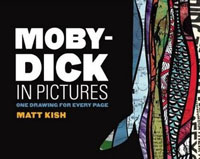 Moby-Dick in Pictures
Moby-Dick in Pictures
by Matt Kish
Tin House Books, 2011
600 pages / $32 Buy from Tin House Books
We often speculate on the future of the book, mourn its possible extinction, and dream of what strange offspring the future intercourse of form and technology might yield. In an age where digital media reigns supreme, Moby-Dick in Pictures is a brilliant, nightmarish argument in defense of the book as a physical object of art. It reads like a labor of hatred and love, the manifestation of the artist’s intimate and tortured, relationship with Melville’s nineteenth century masterpiece.
October 14th, 2011 / 12:00 pm
Other People w/ Brad Listi

The excellent Brad Listi has booted up a new lit podcast, Other People, where he holds in-depth conversations with a variety of authors, at the same time rigorous and playful. Having just done one with Brad myself, I’ve spent the last week digging through some of the quickly growing archives, including Ron Currie, Jr., Jessica Anya Blau, Emma Straub, and many more forthcoming. Find more info and listen online here, or download for free from iTunes.
An Old Junker: a senior represents
Imagine that Holden Caulfield survived his adolescence to become a mid-century man of letters, knew some of the good writers, wrote for some of the good magazines, then headed West to found and edit an adventurous arts journal. Imagine that he rereads the best of the 20th century canon for pleasure and chooses to publish new generations of poets, storytellers, photographers and graphic artists solely on the recognizance of his own eclectic taste. Okay, maybe he’s inordinately proud of the prep school and undergrad classmates who made big waves in the culture that used to be, but he’s also willing to stick pins in the pretenders and tell stories on himself.
October 13th, 2011 / 2:05 pm
Regarding Genre by John Warner
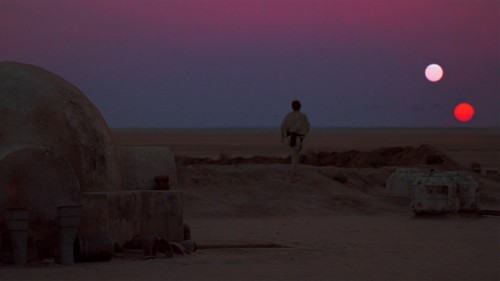
Traditionally, the approach to genre in the university-based creative writing classroom has been to ban it outright, arguing that as long as we’re pursuing a degree in a traditional academic setting, we should be in the literature business, which is obviously something different from genre writing.
Obviously.
We declare fantasy off limits, but magic realism is okay. Kelly Link is fine, but Ursula K. LeGuin only sometimes. Science fiction is no good, unless its Vonnegut or Philip K. Dick, or some of Ray Bradbury, in which case, right on! Everyone loves Lord of the Rings, or now, Game of Thrones, but don’t do that. Why? Because.
Harry Potter? Probably not. Chronicles of Narnia? You’re good. Twilight? Don’t make me laugh.
These restrictions never felt comfortable to me, particularly when I used to enforce them in my own classroom while devouring Patricia Highsmith novels at night. The core of my teaching philosophy, regardless of subject, is “freedom.” Students learn more when they’re given the latitude to explore the material in the ways they find most interesting and compelling. This has certainly been my experience in my own learning.
Dreams dreaming drone drum ho hum
Look at these cute golden retriever puppies. They’re probably dreaming. That’s cute. I like that.
But this post is not about golden retriever puppies.
Yeah, so last night, I had a dream. I died, but it wasn’t bad. I went to some version of afterlife. I went down an elevator (cliche, anyone?). Someone tried to escape by jumping out at sub-level 8. I don’t know what happened to that person. I think he looked like Mike Kitchell crossed with Adam Jameson. And when I got out of the elevator, I definitely wasn’t in heaven.
Reading Comics: Bradley Sands on Superheroes & Superhero Comics
Welcome to the third installment of my new series: Reading Comics. I’m excited to report that I’ve got a bunch of great contributors lined up, and am myself working on a few entries. If you haven’t contacted me yet, but would like to participate, email me and let me know! Without further ado….here’s Bradley Sands…
Why I Like to Read Superhero Comics but Don’t Really Like Superheroes

I am 32-years-old and I have been reading comics since I was in elementary school. Although I enjoy “alternative comics,” the kinds of comics that intrigue me the most are the mainstream superhero comics published by Marvel and DC Comics that I’ve read off and on since childhood. Although the idea of superheroes excited me when I was young, they no longer have this effect on me. But what intrigues me about the comics being published by these two companies are qualities that no other narratives share (except for perhaps soap operas to a small degree, although I find them unwatchable).
Cliché as Necessity (Birthing Innovation)
Every time I’ve said something nice about Drive, someone has responded by calling the film “clichéd.” Well, I intend to keep saying nice things about Drive (as well as other artistic genre films), so let’s take some time here and now to address that criticism, demonstrating how even when certain material or situations might be clichéd, the artist can still find occasions for artistic expression. Indeed, I want to go so far as to suggest that clichéd situations often provide artists with some of the best opportunities for innovation.
“My rap name’s Director’s Commentary”: A Mixed Ape by Giant friends NewVillager here. (Songs ranted over by some sort of maybe crazy person. First person to guess the ranter gets a couple of random galleys from my desk.)

